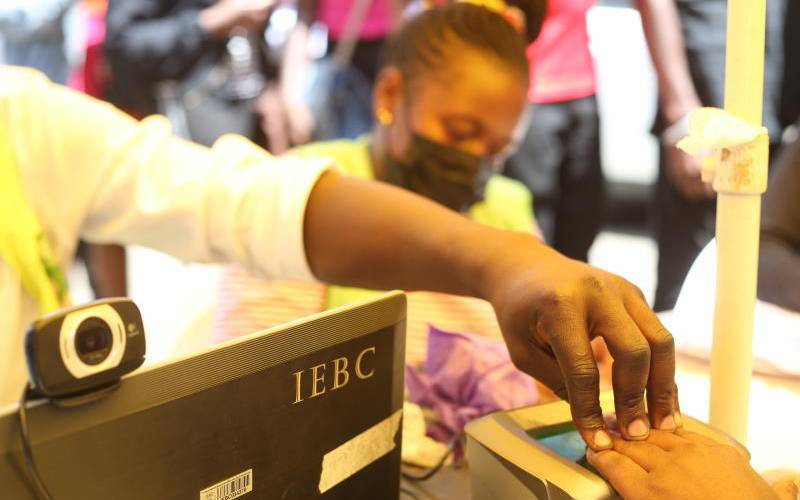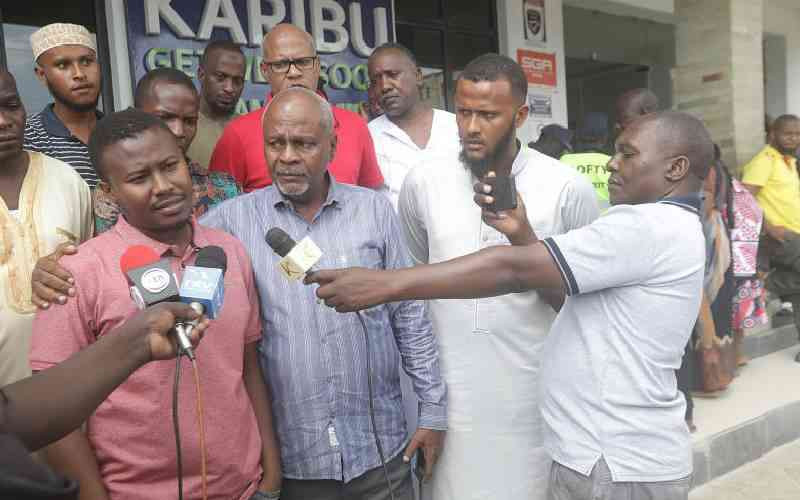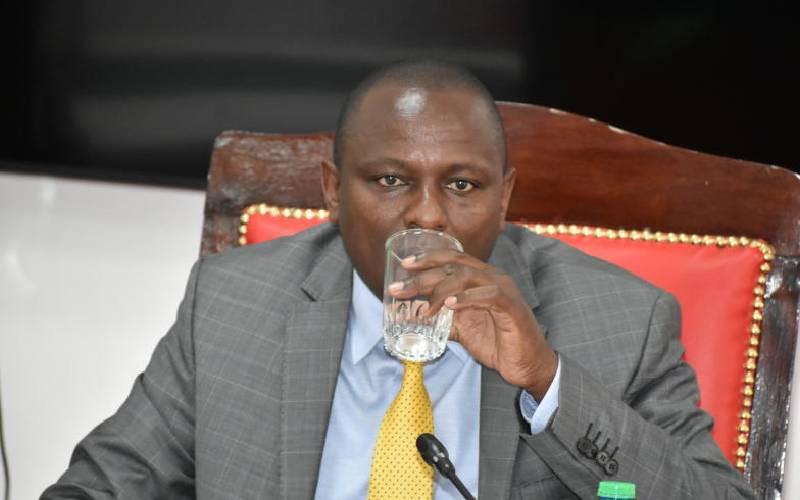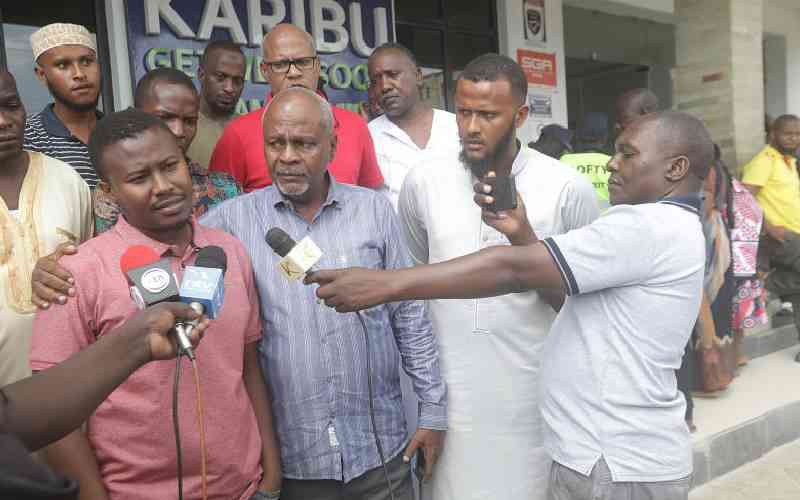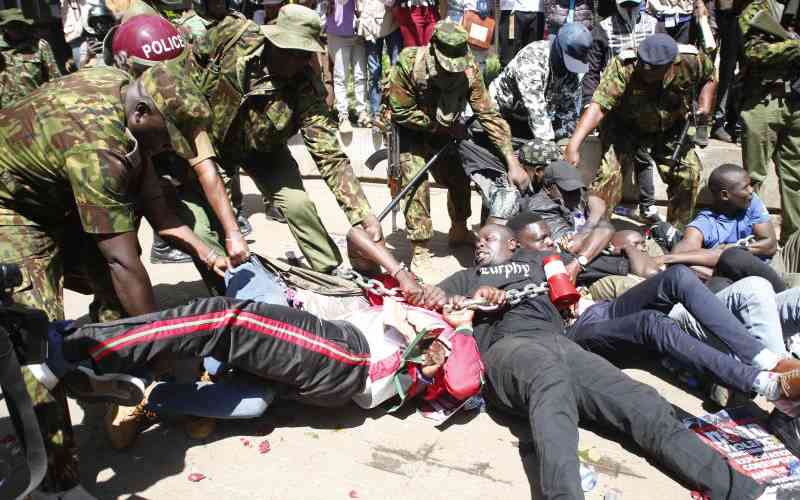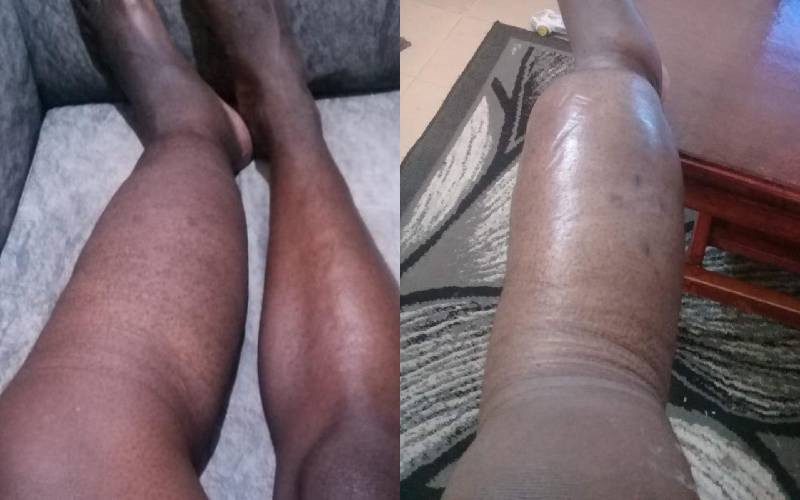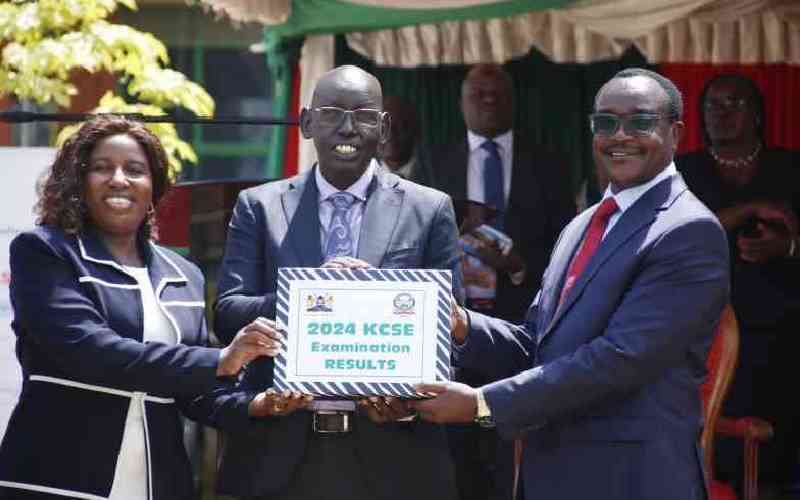By Alex Kiprotich and Patrick Kibet
In what could turn out to be the country’s most expensive election petition, Kanu Secretary General Nick Salat has been slapped with a Sh70 million bill after unsuccessfully filing an election petition.
Salat, who contested and lost the Bomet Senate seat to Wilfred Lesan, had challenged the elections in the High Court.
The High Court in Kericho upheld Lesan’s win, leaving the Kanu Secretary General with costs amounting to Sh57,638,970.
The Independent Electoral and Boundaries Commission (IEBC), which was a respondent in the case, has slapped Salat with a Sh10,422,511 bill.
The bill of costs contains fine details of expenditure, some almost absurd, as the respondents seek to recap expenses incurred in the petition. In drawing the bill, the respondents seemed to take advantage of Judge Aggrey Muchelule’s failure to cap the costs in his ruling delivered on August 19.
“Costs normally follow the event, and there is no reason why it should not be the case here. I order that the petitioner pays the costs of the petition. Such costs shall be taxed by the deputy registrar, if they will not have been agreed upon,” ruled Muchelule.
According to the bill of costs seen by The Standard on Sunday, Senator Lesan, through his lawyers Kipkorir Tele and Kitur Advocates, billed Sh36,000,000 for man-hours spent reviewing the petition by the four advocates who handled the case.
Costly applications
The advocates want Salat to pay them or 80 hours spent in court during the hearing of the petition.
Lesan also wants Sh1,500 for every hour spent in the journey to and from Kericho by his legal team.
The detailed bill of costs also shows another demand for Sh12 million for preparation of trial in addition to instruction costs.
The bill contains several other charges like Sh30,000 for taking evidence from the senator.
Taking instructions from Senator Lesan alone for various applications filed during the petition is an expensive affair.
It is billed at Sh2 million for each of the three applications, including one lodged by Lesan seeking to dismiss the petition on May 27.
Stay informed. Subscribe to our newsletter
The advocates have also asked for Sh12 million for preparation of trial billed at a third of the instruction costs. The figures from the advocates suggest that they are demanding Sh50,000 for attending court for the hearing of the petition.While there is no law setting the maximum costs for any election petition, Kipkoech Ng’etich, a Nakuru-based lawyer, says Advocates Remuneration Order sets the costs of filing a petition at Sh42,000.
Court’s discretion
Ng’etich says issues like court attendance, number of applications made during trial and complexity of the case are considered when fixing costs to be paid in a particular case.
Other costs include making copies of affidavits, drawing affidavits, taking instructions and attending court for the four advocates and Senator Lesan for the hearing of the petition.
IEBC on the other hand, represented by Ms Z Yego Advocates, is demanding Sh10,000,000 for instructions from the commission which included reviewing the petition, documentation and legal research.
The commission, the lawyer argues, would have spent over Sh300 million if the petition was decided in favour of Salat. The firm wants Sh440,880 for attending court for the hearing of the petition.
Lawyer Lawrence Karanja says the award of costs is the discretion of the judge or magistrate handling the petition. He, however, adds that after a lawyer serves the bill of costs, the taxation case goes before a deputy registrar who rules on the final costs to be paid by the party.
In setting the costs, says Karanja, the taxation court considers the complexity of the case, skills required and energy put into the hearing.
Elsewhere, the High Court has awarded costs ranging between Sh2 million and Sh5 million in many petitions filed after the March 4 polls.
Ng’etich, however, notes that no court can award colossal figures for any petition and notes the figures are only intended to facilitate negotiations between parties in a case.
In the petition challenging the election of the Narok governor, despite a huge bill demanded by IEBC at the close of the case last month, Justice Roselyn Wendoh awarded Sh4.5 million to Governor Samuel Tunai, the deputy governor and IEBC.
Astronomical figures
Although the parties had asked for astronomical figures, Justice Wendoh awarded Sh3 million to IEBC, and Sh1.5 million to be shared by the governor and deputy governor.
IEBC, through lawyer Nani Mungai, had demanded Sh54 million from petitioner Ledama ole Kina, claiming the petitioner had raised serious issues touching on the conduct of its returning officers.
In another petition at the High Court in Bungoma, Justice Francis Gikonyo ordered a voter, Moses Likoye, to pay Sh4 million in costs after his petition challenging the election of Webuye East MP Alfred Sambu was thrown out.
Justice David Majanja directed former assistant minister Wavinya Ndeti to pay Sh4.5 million to Machakos Governor Alfred Mutua after she lost a petition she had filed against his election.
The High Court in Eldoret last month ordered Hosea Kiplagat to pay Sh2 million in costs after his petition challenging the election of Baringo Central MP Sammy Mwaita was dismissed by Justice Lydiah Achode.
Justice Cecilia Githua, sitting at the High Court in Malindi, directed Hassan Liberty to pay Sh4 million in costs after the court dismissed his petition against Abu Chiaba.
 The Standard Group Plc is a
multi-media organization with investments in media platforms spanning newspaper
print operations, television, radio broadcasting, digital and online services. The
Standard Group is recognized as a leading multi-media house in Kenya with a key
influence in matters of national and international interest.
The Standard Group Plc is a
multi-media organization with investments in media platforms spanning newspaper
print operations, television, radio broadcasting, digital and online services. The
Standard Group is recognized as a leading multi-media house in Kenya with a key
influence in matters of national and international interest.
 The Standard Group Plc is a
multi-media organization with investments in media platforms spanning newspaper
print operations, television, radio broadcasting, digital and online services. The
Standard Group is recognized as a leading multi-media house in Kenya with a key
influence in matters of national and international interest.
The Standard Group Plc is a
multi-media organization with investments in media platforms spanning newspaper
print operations, television, radio broadcasting, digital and online services. The
Standard Group is recognized as a leading multi-media house in Kenya with a key
influence in matters of national and international interest.

